Outlook ‘nasty’ as Victoria ‘killing golden goose’ of business in Covid lockdown
Victoria’s biggest business owners warn of a ‘nasty’ outlook for the state’s economy from the lockdown roadmap.
Victorian big business owners have warned that Premier Daniel Andrews’ lockdown politics will “kill the golden goose” of the state economy and the outlook for next year is “nasty” as collapse looms for many small and medium enterprises.
Business leaders, many of whom are among the biggest private employers in the state, questioned the government’s lack of consultation with industry and said many companies would be unable to plan for a hoped-for Christmas retail rush, with uncertainty over the prospect of being able to open.
Chris Morris, an owner of a string of pubs and hotels across Victoria, labelled the Premier’s latest roadmap “bizarre”, while John Gandel, co-owner of the giant Chadstone shopping centre, said the state’s strategy “has brought absolutely no certainty to the whole situation whatsoever”.
Other business leaders labelled Mr Andrews as “stubborn” and said he would not listen to ideas from business to attempt to open up the economy further and that he was pursuing an eradication strategy on COVID-19 that was “unrealistic”.
But property doyen Max Beck said Mr Andrews was doing a good job in tough circumstances.
“I think he is doing a good job and it is hard to see what else he could do given the [COVID infection] numbers,” Mr Beck said.
“I am confident Victoria can get through this. It is a resilient state. They used to call us the rust belt of the country and Melbourne became the world’s most liveable city. It can bounce back.”
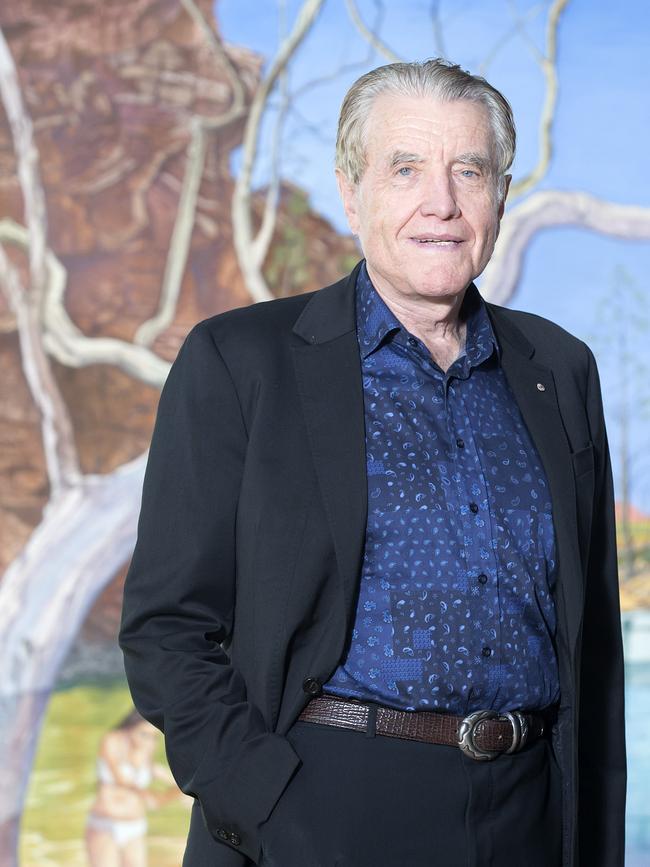
But other business leaders warned that the fallout from Mr Andrews’ move to extend lockdown rules until at least the end of October, and with further restrictions for much of November, would be considerable and last well into next year.
“Things will definitely get worse in the first six months of next year when government subsidies run out and banks want their debts paid and everyday punters have to start repaying their mortgages. That’s when the real crunch will come,” Flight Centre co-founder Geoff Harris said.
“If you’re a business owner wanting to invest in Victoria, will you deploy your capital here, interstate or internationally?
“I really think this is killing the goose that laid the golden egg that is business in Victoria, which pays the taxes that help fund the health sector and so on.”
Mr Harris said most restaurants and food chains were barely getting by serving only takeaway, even with the federal government’s JobKeeper program and rent relief.
The end of both would mean “a lot of SME businesses will not reopen and hence the biggest problem in Victoria is a lot lower-paid workers would not have a job to come back to”.
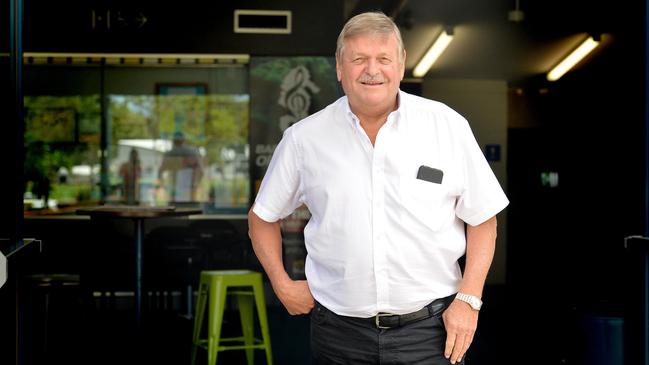
Mr Morris said he had been forced to close most of his pubs and stand down hundreds of workers, only staying open in suburban Melbourne for takeaway.
“We’re not making any money on that and are doing it to keep staff in work and the lights on,” he said.
“We’re lucky we have other hotels in WA and business in Queensland, but the situation in Victoria is not good,” Mr Morris added.
NAB chief economist Alan Oster said the pace of Victoria’s road map to recovery was “obviously not positive” for the national economy and that the December quarter was likely to see a small economic contraction.
“I think in the next six months, our economy is basically flat,” Mr Oster told The Australian, adding that the effects of imposing or lifting lockdowns could take a while to flow through to the broader economy.
“We would expect a small positive in September and a small negative in December.
“The reason we say that is when we look at our internal data, Victoria was OK up until about the second week of August, so the first half of the September quarter was better than people thought.
“While the impact of the lockdown was significant, it had an impact reasonably late and will spread over the next three to five months.
“We’re not going to be out of lockdown in a big way until the end of November, which means the peak level of unemployment will still be at the beginning of next year … I wouldn’t be surprised if it was around 10 per cent in the March quarter.”
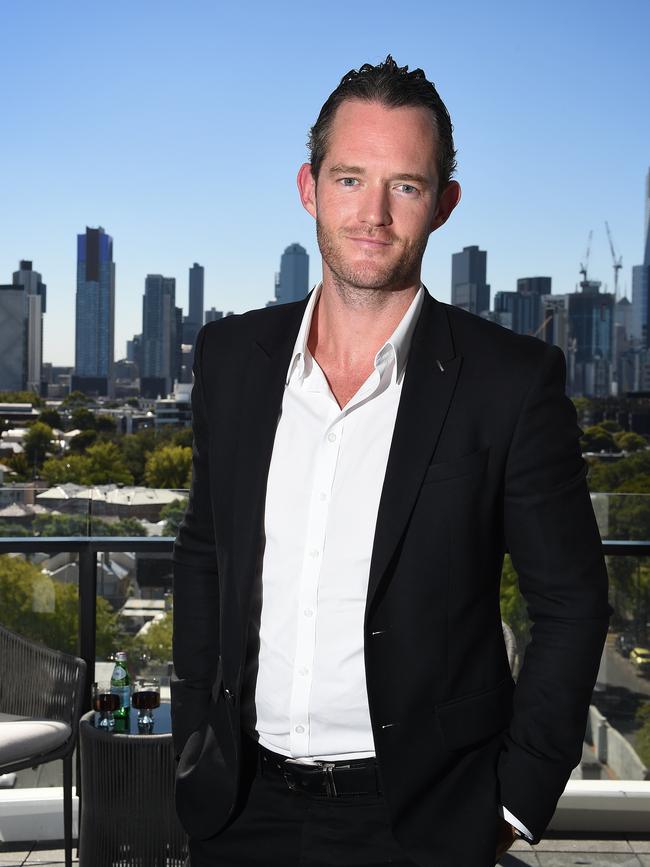
Property developer Tim Gurner concurred, saying the outlook for Victoria next year was extremely concerning. “The longer this goes on, the worse it gets. There’s no argument against locking down for another two weeks, but beyond that is creating a lot of unnecessary stress for no reason,” Mr Gurner said.
“Our amazing [Melbourne] CBD is getting absolutely smashed and it is going to take a long time to come back. Unless there’s the most incredible stimulus next year, and you get in more international students and so on, the situation will be incredibly nasty.
“The only thing to save the ship is government spending. There’s no way private business can get the economy going without huge stimulus, and I’m talking significantly more than they are doing now.”
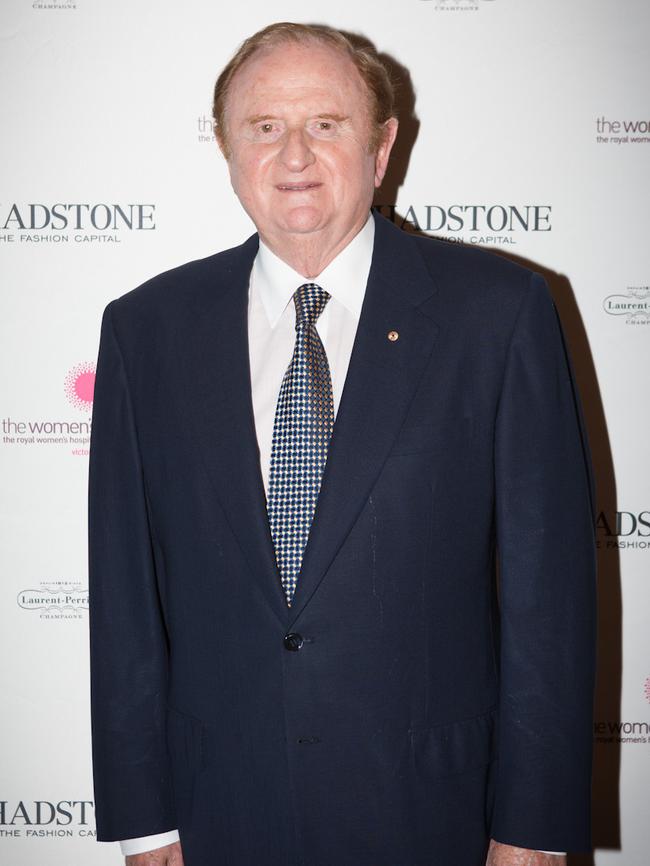
Mr Gandel said he worried that “tens of thousands of business owners could have to close their doors when the government assistance stops” and a similar number of people would be out of work.
“For a retailer, the busiest time of year is the Christmas period. This year, how can an owner plan for a big season — maybe borrowing money to increase their inventory — when it is uncertain if they can open,” Mr Gandel said.
“It is very worrying.”
Jayco caravans owner Gerry Ryan said his employees were keen to return to the factory. “Our staff are telling us they want to come back. We’ve got 250 orders ready to go,” he said. “The rest of the country wants to get in their caravans and go on holidays.
“But we can’t supply them at the moment.”


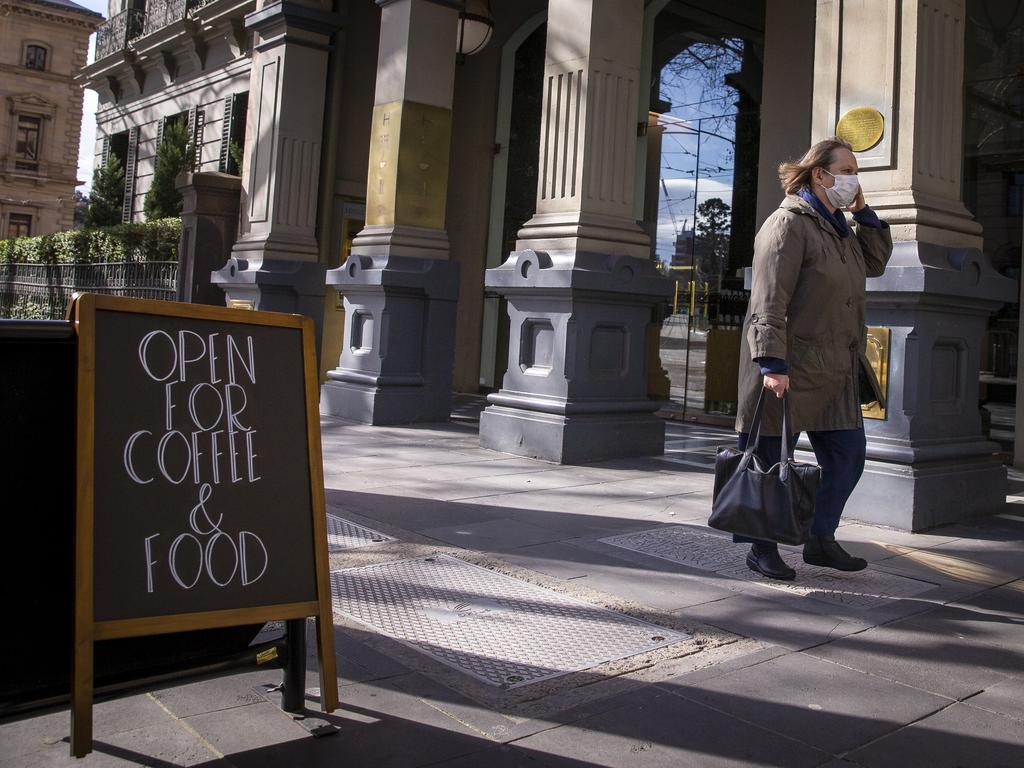




To join the conversation, please log in. Don't have an account? Register
Join the conversation, you are commenting as Logout